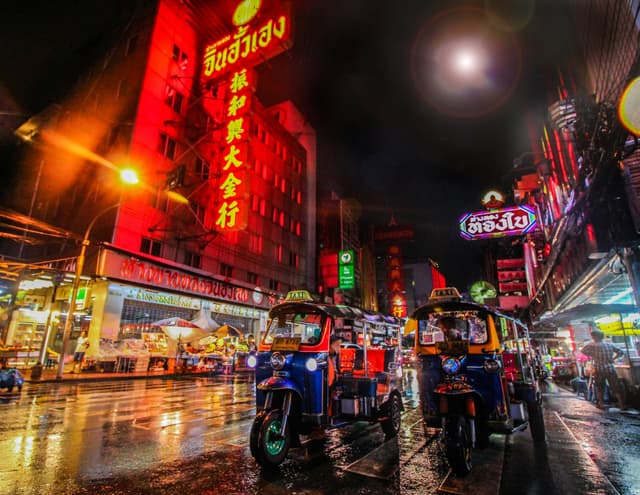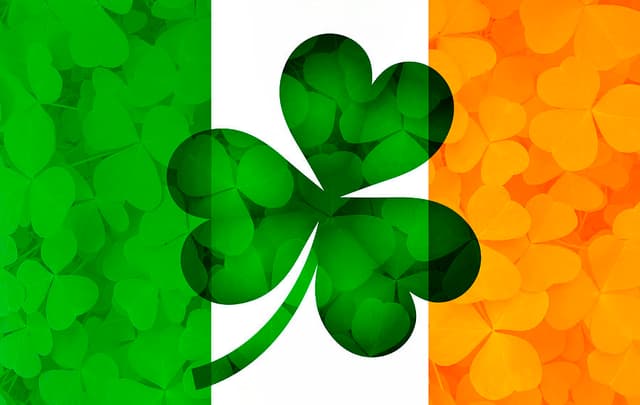Bangkok, Thailand vs. Ireland
Bangkok, Thailand
Bangkok is the capital of Thailand and its biggest city. It sits along the Chao Phraya River in central Thailand, spreading out over a large area with nearly 9 million people living in the city itself and over 17 million in the surrounding region. It’s a place that mixes old traditions with modern life. On one side, you’ve got ancient temples like Wat Pho and Wat Arun, and on the other, you’ve got massive shopping malls and skyscrapers. The city has been around for a long time, starting as a small trading post in the 15th century. It became the capital in 1782 when King Rama I moved it to the eastern bank of the river. Over the years, Bangkok has seen a lot—colonial pressures, modernization, political protests, and economic growth. It really took off in the 1980s and 1990s when foreign companies started setting up shop there. Bangkok is known for being busy and full of life. The streets are packed with cars, motorbikes, and tuk-tuks, which often leads to heavy traffic. Despite effort...
Ireland
Ireland is a small country with a big presence. Its capital, Dublin, is a lively city known for its mix of history, culture, and modern energy. Walk through the streets and you’ll find Georgian buildings, contemporary architecture, and plenty of places to hear live music or have a chat over a coffee—or a pint. The country has changed a lot over the past few decades. Once more rural and conservative, modern Ireland is progressive and increasingly diverse. It's known for its strong economy, driven in part by tech and finance companies that have set up shop in Dublin. But away from the business districts, life moves at a slower pace, especially in smaller towns and the countryside. Culture runs deep. Ireland has long punched above its weight in literature, music, and the arts. Writers like James Joyce and W.B. Yeats are still celebrated, but contemporary authors, filmmakers, and musicians continue to make their mark. Traditional Irish music hasn’t faded—it just sits comfortably alongsid...
Reviews
Reviewed on 2/23/2025
It took me a good few trips to adapt but not I absolutely love this city.
Reviews
| Item | Votes | Upvote |
|---|---|---|
| Delicious street food everywhere | 1 | |
| Very affordable | 1 | |
| World's biggest bazaar | 1 |
| Item | Votes | Upvote |
|---|---|---|
| Not walkable | 1 |
| Item | Votes | Upvote |
|---|---|---|
| No pros yet, would you like to add one? | ||
| Item | Votes | Upvote |
|---|---|---|
| No cons yet, would you like to add one? | ||
Frequently Asked Questions
Yes, Bangkok is renowned for its delicious street food available everywhere, making it a top destination for food lovers. In contrast, while Ireland has made strides in its culinary scene, it is not particularly known for street food, focusing more on traditional dishes and local ingredients in restaurants and markets.
Bangkok is famous for its wild nightlife scene, featuring a variety of bars, clubs, and entertainment options, including well-known red-light districts. Ireland, particularly in cities like Dublin, has a lively pub culture and live music scene, but it generally offers a more laid-back nightlife experience compared to the energetic atmosphere of Bangkok.
Yes, Bangkok is considered very affordable for travelers, with low costs for food, accommodation, and transportation. In contrast, while Ireland has budget options, it is generally more expensive, especially in urban areas like Dublin, where prices for dining and lodging can be higher.
Ireland, particularly in cities like Dublin, is more walkable with pedestrian-friendly streets and a compact city layout. Bangkok, on the other hand, is not very walkable due to heavy traffic and sprawling urban areas, making it challenging for pedestrians.
Ireland has a rich cultural heritage deeply rooted in literature, music, and the arts, with a strong emphasis on traditional Irish music and dance. While Bangkok also has a vibrant culture with ancient temples and festivals, Ireland's literary and artistic contributions are more globally recognized, giving it a distinct cultural identity.
Pros of Bangkok, Thailand include delicious street food available everywhere, affordability, and being home to the world's biggest bazaar. However, a notable con is that the city is not very walkable, which can make getting around challenging.
Bangkok, Thailand is known for its vibrant culture, bustling street life, and a mix of ancient traditions and modernity. The city features famous landmarks such as the Grand Palace, Wat Pho, and Wat Arun, as well as a lively street food scene and extensive shopping options, including the world's biggest bazaar.
Bangkok has a rich history that dates back to the 15th century when it started as a small trading post. It became the capital of Thailand in 1782 when King Rama I moved it to the eastern bank of the Chao Phraya River. Over the years, Bangkok has experienced significant changes, including colonial pressures, modernization, and economic growth, particularly during the 1980s and 1990s.
Transportation in Bangkok can be challenging due to heavy traffic, with streets often packed with cars, motorbikes, and tuk-tuks. While there have been improvements in public transportation, including skytrains and subways, traffic jams remain a common issue. The city is not very walkable, which can make navigating it more difficult.
Popular attractions in Bangkok, Thailand include the Grand Palace, Wat Pho, and Wat Arun. Tourists also flock to markets like Chatuchak and various floating markets, as well as Khao San Road, which is known for its budget hostels, bars, and street vendors.
The nightlife in Bangkok, Thailand is vibrant and diverse, offering everything from lively bars to well-known red-light districts. The city comes alive at night, providing a range of entertainment options for both locals and tourists.
Ireland is known for its rich cultural heritage, vibrant cities like Dublin, and stunning landscapes featuring green fields, dramatic coastlines, and rugged hills. The country has a strong presence in literature, music, and the arts, with famous writers such as James Joyce and W.B. Yeats. Additionally, Ireland has a growing economy driven by tech and finance, and it is recognized for its traditional Irish music and modern culinary scene.
Pros of living in Ireland include its rich cultural scene, friendly communities, and beautiful landscapes. The country has a strong economy and offers a blend of modern and traditional lifestyles. However, some cons may include the high cost of living in urban areas like Dublin and unpredictable weather, which can be rainy and damp.
The food in Ireland has evolved from its traditional meat-and-potatoes reputation to focus on fresh, local ingredients and creative cooking. While hearty stews and fresh-baked bread remain popular, there is also a growing emphasis on seafood, especially in coastal areas, and farmers' markets are common throughout the country.
Sports play a significant role in Irish life, with Gaelic games like football and hurling being uniquely Irish and deeply connected to local pride. Additionally, soccer, rugby, and golf are also widely followed and enjoyed by many.
In recent years, Ireland has undergone significant social changes, including the legalization of same-sex marriage and the easing of restrictions on abortion. The country has shifted away from the strong influence of the Catholic Church while maintaining traditional values like community and hospitality. Modern Ireland is increasingly diverse and progressive, blending old traditions with new ideas.
Related Content & Alternatives
- 3
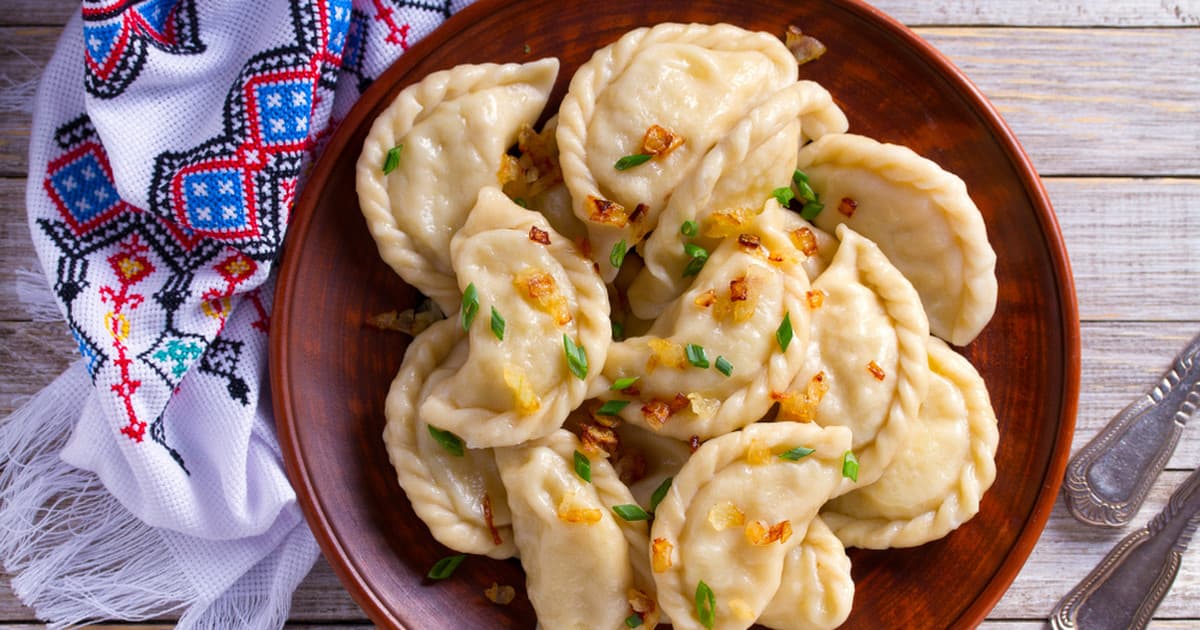 1.Polish Cuisine
1.Polish CuisinePolish cuisine is all about comfort, rich flavors, and tradition. It’s the kind of food that sticks to your ribs, perfect for long winters and big family gatherings. Think hearty soups, meat-heavy dishes, and a lot of potatoes, cabbage, and bread. Pierogi are probably the most famous Polish dish—soft dumplings filled with anything from potato and cheese to meat, mushrooms, or sweet fruits. Then there’s bigos, a slow-cooked hunter’s stew packed with sauerkraut, fresh cabbage, sausage, and sometimes even wild game. It’s the kind of dish that gets better the longer it sits. If you like schnitzel, you’ll love kotlet schabowy, a breaded pork cutlet usually served with mashed potatoes and pickled cucumber salad. And for something truly Polish, there’s żurek—a sour rye soup with sausage and egg, often served in a bread bowl. Poland is also big on fermented foods like ogórki kiszone (pickled cucumbers) and kapusta kiszona (sauerkraut), which add a tangy kick to meals. And if you have a sweet tooth, Polish desserts won’t disappoint—pączki (fluffy doughnuts filled with rose jam), sernik (a dense cheesecake), and makowiec (a poppy seed roll) are just the start. To wash it all down? Vodka, of course. Poland has been perfecting it for centuries. But if you prefer something milder, there’s always hot tea with lemon or kompot, a homemade fruit drink. Polish food is all about big portions, simple ingredients, and bold flavors. It’s the kind of cooking that makes you feel at home, no matter where you’re from.
- 3
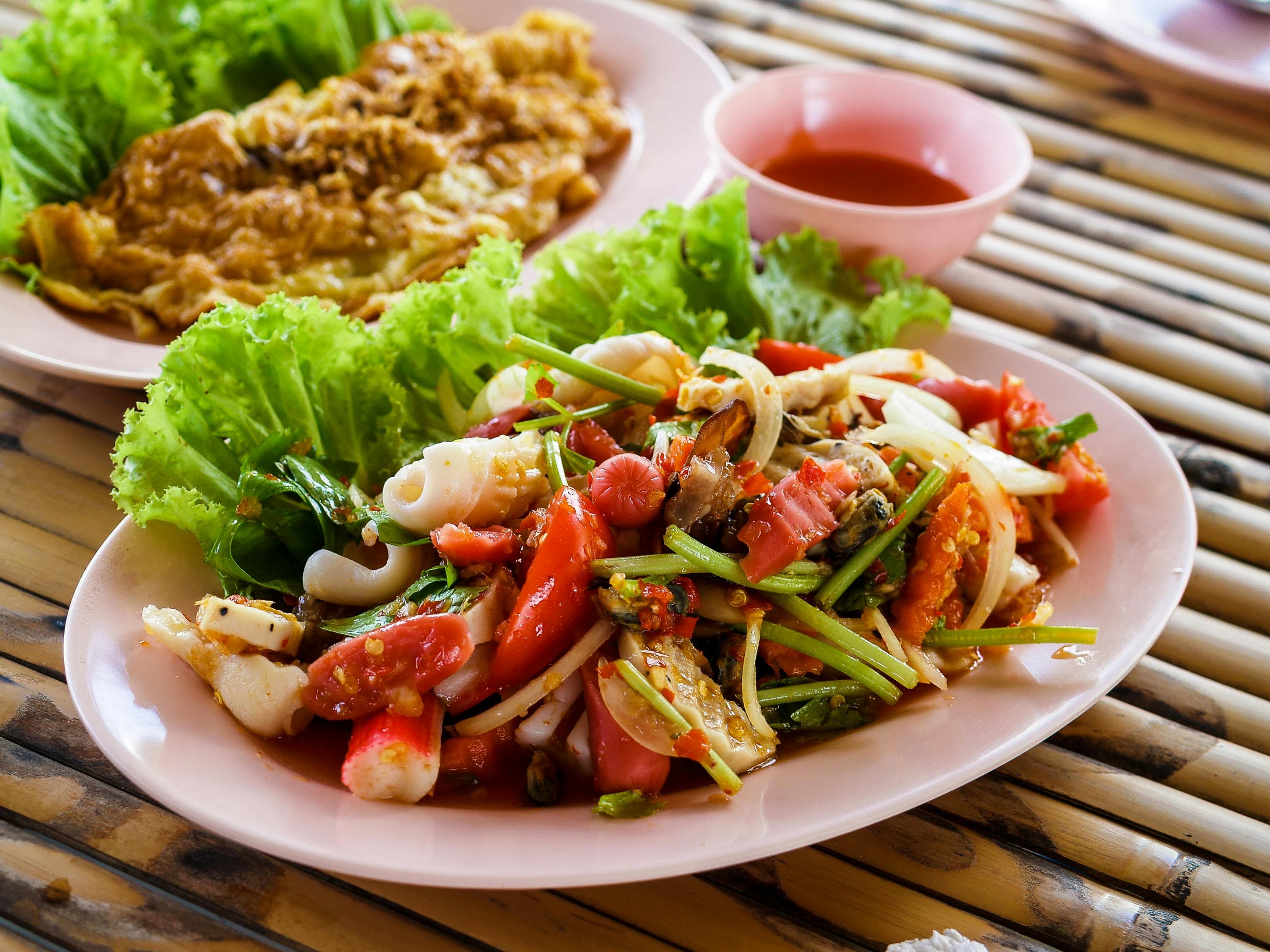 2.Thai Cuisine
2.Thai CuisineThai cuisine is all about bold flavors, fresh ingredients, and a balance of sweet, sour, salty, bitter, and spicy tastes. Every meal feels like a mix of contrasts that somehow just works. You’ve got fragrant herbs like lemongrass, Thai basil, and kaffir lime leaves, paired with staples like fish sauce, chili, and coconut milk. Rice is at the heart of it all—jasmine rice is common in central and southern Thailand, while sticky rice rules up north and in the northeast. Meals are usually shared. There’ll be a spread of dishes—maybe a curry, a stir-fry, a soup, and a salad—all eaten with rice in the middle. The idea is to balance flavors across the meal rather than in just one dish. You might get the rich creaminess of massaman curry alongside the sharp, spicy crunch of som tam (green papaya salad) and the comforting warmth of a clear broth like tom yum. Street food is a huge part of everyday life. Walk down any road and you’ll find vendors grilling skewers of marinated meat, tossing noodles in sizzling woks, or dishing up hot bowls of noodle soup. Grab a plate of pad Thai, a bag of fried chicken with sticky rice, or a steaming bowl of boat noodles from a floating market. And if you’ve got a sweet tooth, there’s mango sticky rice, coconut-based desserts, and crispy pancakes filled with sweet custard. Different regions have their own twist. In the north, dishes like khao soi—a curry noodle soup topped with crispy noodles—are popular, while the northeast (Isan) is known for grilled meats, sticky rice, and punchy salads. Down south, expect fiery curries with plenty of coconut milk and fresh seafood. Even breakfast can be exciting—sometimes just rice and an omelet, other times noodle soups or patongko (Thai donuts) with sweetened condensed milk. No matter where you go in Thailand, the food is vibrant, flavorful, and often made to be enjoyed with others. It’s comforting, lively, and always about that perfect mix of flavors.
- 2
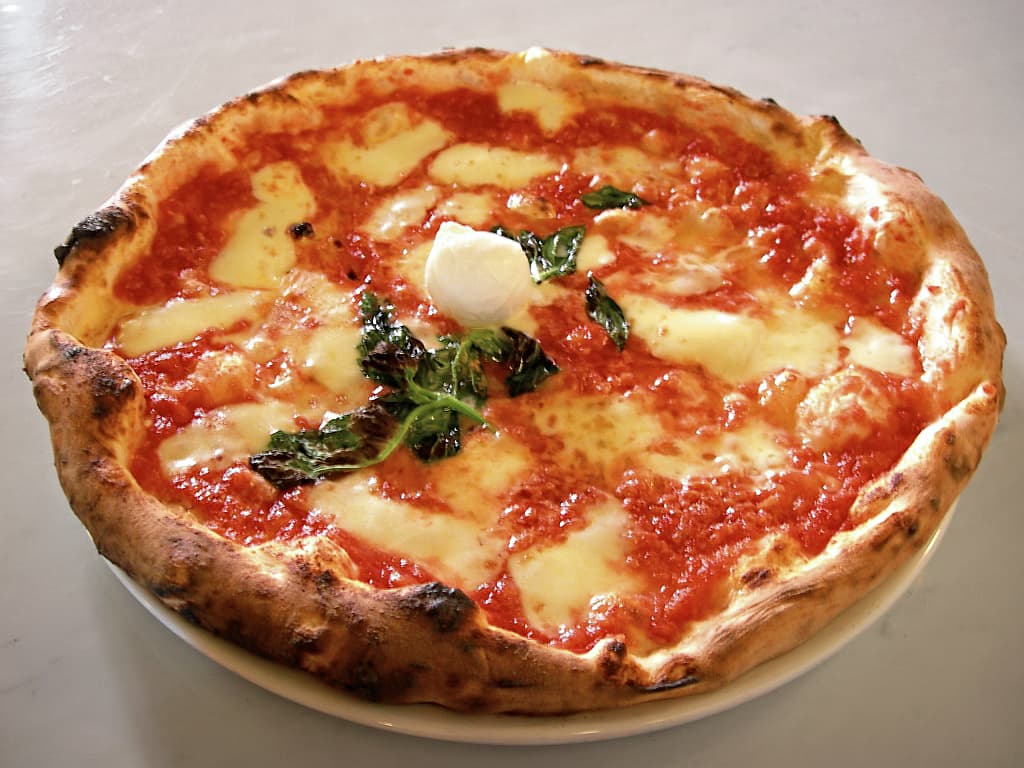 3.Italian cuisine
3.Italian cuisineThe one that we all know and love. Pizza, pasta, risotto, gnocchi, tortellini and many, many more. Also ice cream aka gelato. And limoncello. And wine. Italians love food and it shows.
- 1
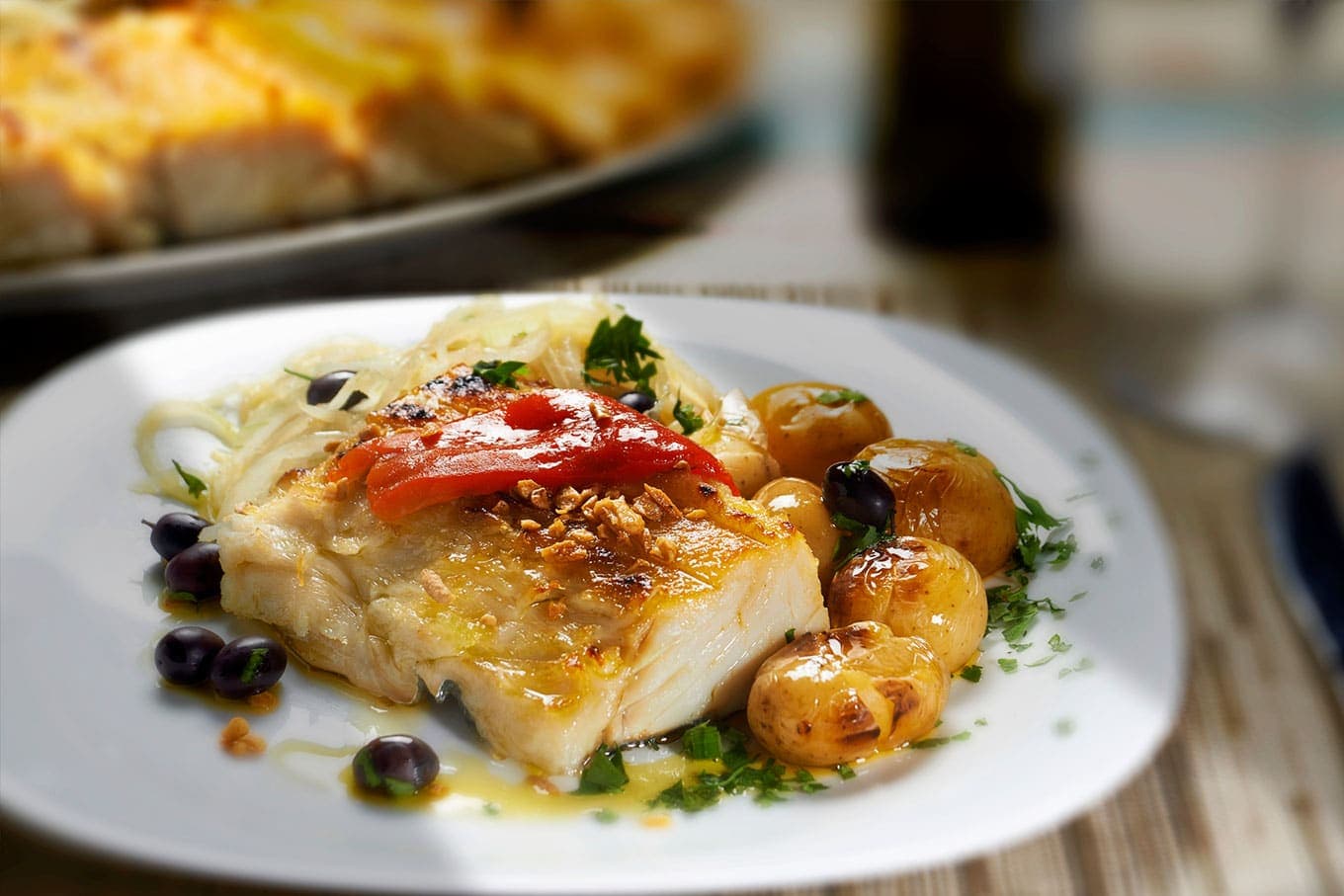 6.Portuguese Cuisine
6.Portuguese CuisinePortuguese cuisine stands as a prime contender for the title of the best food in the world, thanks to its rich culinary traditions, emphasis on fresh ingredients, and a harmonious blend of flavours that reflect its historical maritime prowess. Here's a compelling argument that underscores why Portuguese food deserves this accolade: Diversity Influenced by History and Geography Portuguese food is a palimpsest of the various cultures that have interacted with Portugal over centuries. From the Age of Discoveries when Portuguese explorers brought back spices from Africa and Asia, to the integration of New World crops such as tomatoes and potatoes, the cuisine reflects a synthesis of global flavours uniquely blended with traditional Iberian techniques. This historical melding of east and west, north and south, makes Portuguese cuisine not only diverse but uniquely rich and varied. Focus on High-Quality, Fresh Ingredients At the heart of Portuguese cuisine is the use of fresh, high-quality ingredients. The country's extensive coastline provides an abundance of fresh seafood, from sardines and bacalhau (dried and salted cod) to octopus and various shellfish, which are staples in the Portuguese diet. The emphasis on fresh, local produce and the traditional farming and fishing techniques enhance the natural flavours of the ingredients, allowing for dishes that are both simple and profoundly satisfying. Culinary Techniques that Enhance Flavour Portuguese cooking methods themselves are a testament to a culinary tradition that prioritises flavour. The use of 'cataplana' (a clam-shaped cooker) seals in the flavours and juices of the ingredients, while techniques such as grilling over charcoal infuse dishes with a smoky richness that is hard to replicate. The simplicity of seasoning, primarily using piri-piri (small fiery chillies), garlic, and olive oil, underscores the natural tastes of the ingredients rather than overpowering them.
- 3
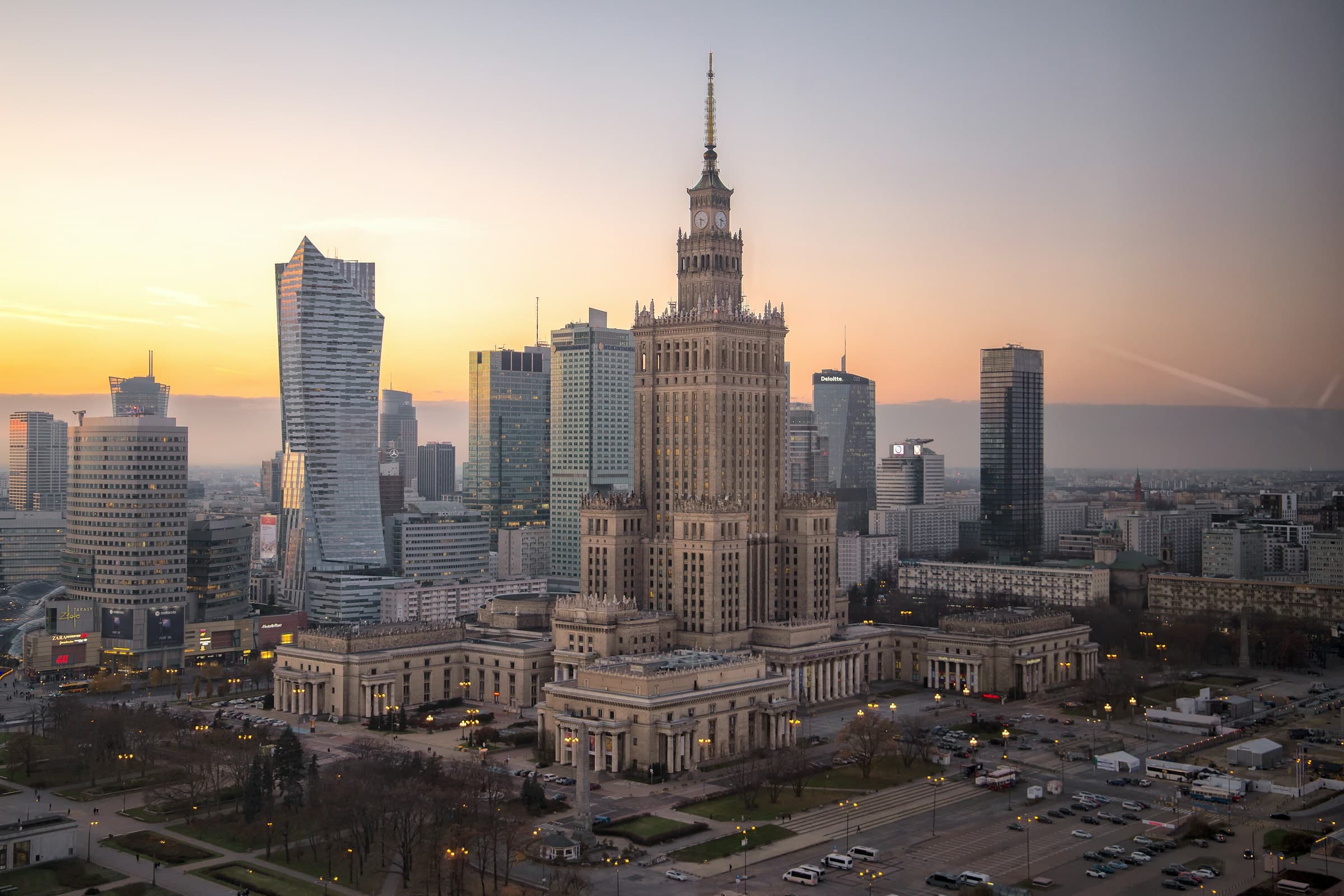 1.Warsaw, Poland
1.Warsaw, PolandWarsaw is the capital of Poland, sitting on the Vistula River in the east-central part of the country. With nearly 1.9 million people in the city and over 3 million in the wider metropolitan area, it’s Poland’s biggest city. It’s a place where old and new collide—modern skyscrapers stand next to rebuilt historic districts, and its skyline is a mix of glass towers and ornate churches. The Old Town, destroyed in World War II and painstakingly rebuilt, is now a UNESCO World Heritage Site. Walking through its cobblestone streets, you’ll find the Royal Castle and the colorful Market Square. Not far off is the Royal Route, a stretch of old palaces, churches, and the Presidential Palace, leading down to the grand Wilanów Palace and its gardens. Despite the scars of war—most of the city was flattened during WWII—Warsaw bounced back fast. The post-war communist era left a mark with grey apartment blocks and the towering Palace of Culture and Science, a gift from the Soviet Union that’s still one of the tallest buildings in Poland. Now, Warsaw’s business district is full of sleek glass skyscrapers, including the Varso Tower, the tallest in the EU. Green spaces are everywhere. Łazienki Park, home to peacocks and the Chopin monument, is a popular spot for Sunday strolls. The Vistula Riverbanks are packed with bars and cycling paths in summer. Even with its urban sprawl, about a quarter of the city is covered by parks and forests. Warsaw’s history is complicated. It was once a cultural melting pot, with a large Jewish community before the Holocaust. The city remembers that past with places like the POLIN Museum and the remnants of the Warsaw Ghetto. It also honors its wartime resistance, especially the 1944 Warsaw Uprising, with monuments and the powerful Uprising Museum. The city’s cultural life is rich. It hosts jazz festivals, classical concerts (especially anything Chopin-related), and has a buzzing nightlife. Food-wise, you’ll find everything from traditional Polish pierogi and hearty soups to modern vegan spots and Michelin-starred restaurants. There’s even a strong café culture, with old-school spots alongside trendy coffee bars. Weather in Warsaw is typical for Central Europe—cold, snowy winters and warm, sometimes stormy, summers. Spring and autumn can be mild and pleasant, though the weather can change quickly. In short, Warsaw is a city of contrasts. It’s got a tragic past but a vibrant present, blending historic charm with modern energy. Whether you’re wandering through its parks, exploring museums, or sipping coffee along the river, there’s plenty to take in.
- 0
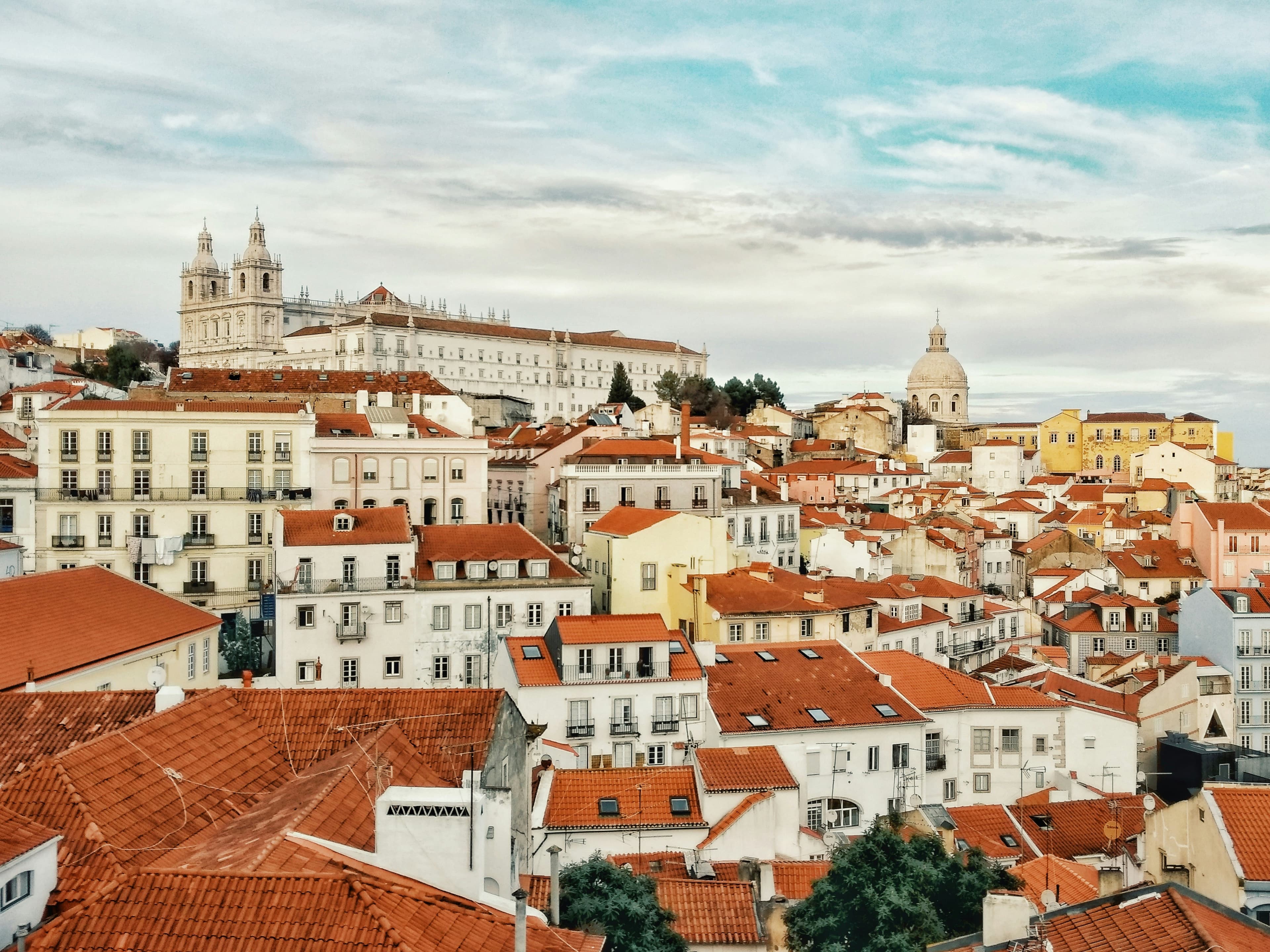 3.Lisbon, Portugal
3.Lisbon, PortugalLisbon sits on the western edge of Europe, right where the Tagus River meets the Atlantic Ocean. The city is built on a series of hills, which gives it sweeping views of red-tiled rooftops, cobbled streets, and the water beyond. Walking around, you’ll notice how the narrow lanes twist and turn, especially in neighborhoods like Alfama, where clotheslines stretch between buildings and the smell of grilled sardines lingers in the air. It’s a place where old and new blend together. You’ll find trams from the early 20th century rattling through streets, while modern glass buildings rise up in other parts of town. Down by the river, the Belém Tower and Jerónimos Monastery, both from the Age of Discovery, remind you that Portuguese explorers once set out from this very spot. Lisbon gets plenty of sunshine—nearly 3,000 hours a year. Summers are warm and dry, while winters stay cool and damp, but not too cold. Along the riverbanks, locals sit at cafés, sipping coffee or wine, while ferry boats glide across the water. Economically, Lisbon is Portugal’s hub, with banking, tech companies, and tourism bringing in most of the money. There’s a steady flow of visitors, drawn by the mild weather, historic sites, and laid-back vibe. Despite the city’s modernization, many residents struggle with rising living costs, especially with the influx of tourists and expats driving up housing prices. Culturally, the city is rich. Fado music echoes from small bars, and street art colors many walls. Markets buzz with fresh produce and seafood. People here celebrate Saint Anthony’s festival in June with street parties, music, and grilled sardines everywhere you look. Getting around is easy enough. There’s an extensive metro system, old-school trams, buses, and even ferries to cross the river. And if you fancy a bit of green space, parks like Eduardo VII Park or Monsanto Forest Park offer a break from the city streets. In short, Lisbon is a city that wears its history proudly but doesn’t mind embracing the modern world. It’s got a relaxed pace, friendly locals, and a charm that’s hard to shake.
- 2
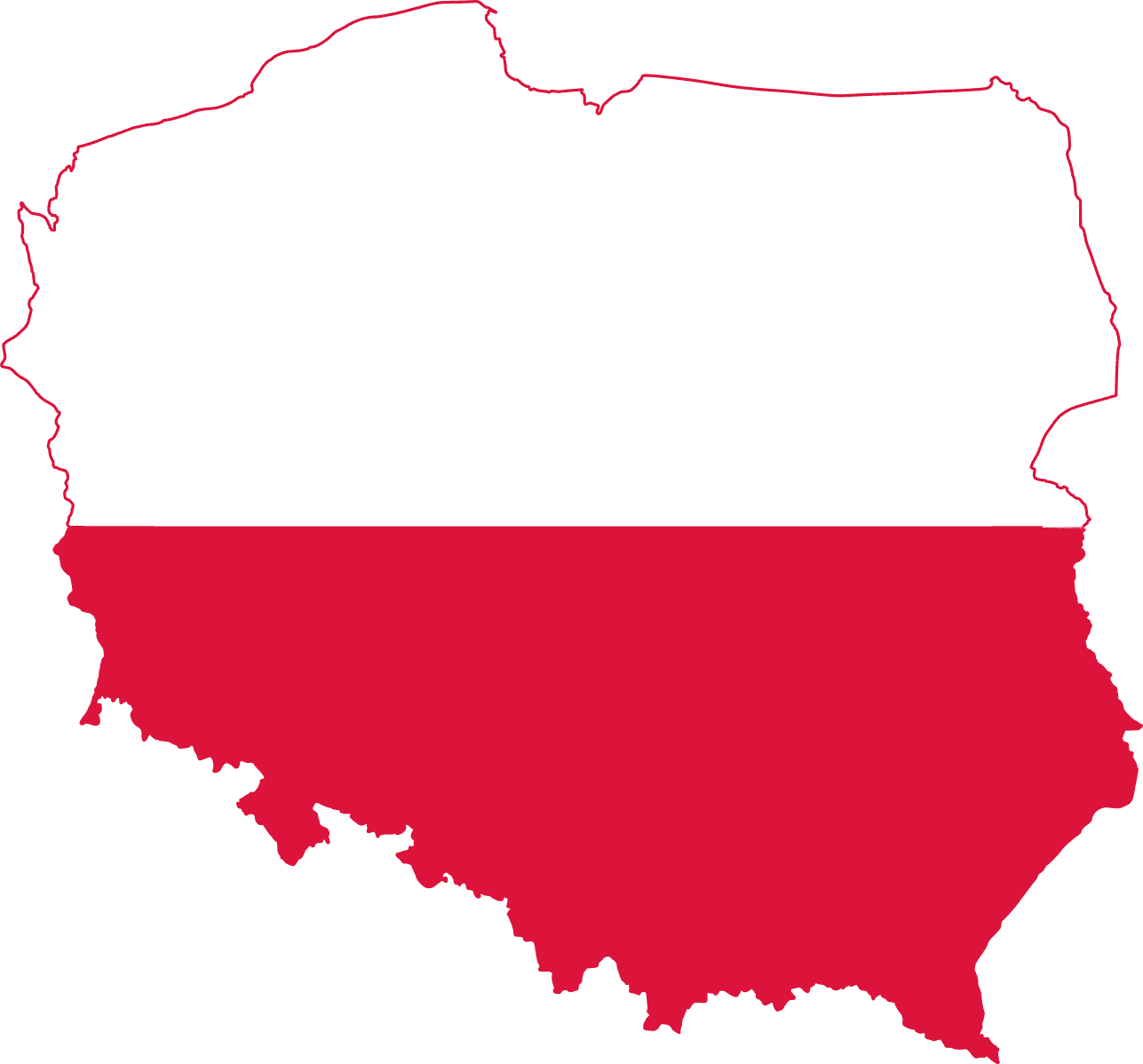 2.Poland
2.PolandPoland sits in Central Europe, stretching from the Baltic Sea in the north to mountains in the south. It shares borders with Germany to the west, Lithuania and Russia to the northeast, and several other countries along the east and south. Its landscape is a mix—flat plains in the center and north, and hilly or mountainous areas in the south. The coastline along the Baltic Sea is known for sandy beaches and coastal ridges. Inland, there are thousands of lakes, especially in the northeast, and big rivers like the Vistula and Oder cut across the land. The weather is temperate. Summers are warm, winters moderately cold. Rain tends to fall more during the summer months, and winters are becoming drier over time. Poland has deep roots in European history. It became a kingdom in 1025, later forming a powerful union with Lithuania. The Polish–Lithuanian Commonwealth was once one of Europe’s biggest states, with a unique political system. Poland's fortunes shifted in the late 18th century, when its neighbors carved it up, erasing it from maps for over a century. It re-emerged after World War I, only to be invaded at the start of World War II—a conflict that brought devastation and the horrors of the Holocaust. After the war, Poland fell under Soviet influence, but by 1989, it was the first Eastern Bloc country to shake off communism, thanks largely to the Solidarity movement. Today, Poland is a democratic country with a population of over 38 million. Warsaw, the capital, is the largest city. Others like Kraków, Gdańsk, and Wrocław are known for historic centers and vibrant culture. The economy is strong, with Poland being one of the larger economies in the European Union. Nature lovers come for places like the Tatra Mountains or the ancient Białowieża Forest, home to Europe’s largest land mammal—the European bison. There are 23 national parks, and over 17 sites are recognized as UNESCO World Heritage locations, from medieval town squares to the haunting Auschwitz-Birkenau memorial. Culturally, Poland has a rich tradition of music, literature, and art. Composer Frédéric Chopin and novelist Joseph Conrad both came from here. More recently, Poland’s fantasy literature, like Andrzej Sapkowski’s The Witcher series, has found global fame. Polish cuisine is hearty, with dishes like pierogi (dumplings), bigos (a cabbage and meat stew), and żurek (sour rye soup). Vodka has its roots here, but beer and wine are also popular. Sports are big in Poland—football (soccer) is a national passion, though volleyball and speedway racing attract large crowds too. The country also boasts top tennis players like Iga Świątek and mountaineers who’ve climbed the world’s highest peaks. Despite its complicated past, Poland today balances its historical heritage with modern growth. Old town squares sit beside new buildings, and traditions are kept alive alongside a fast-developing economy and infrastructure.
- 3
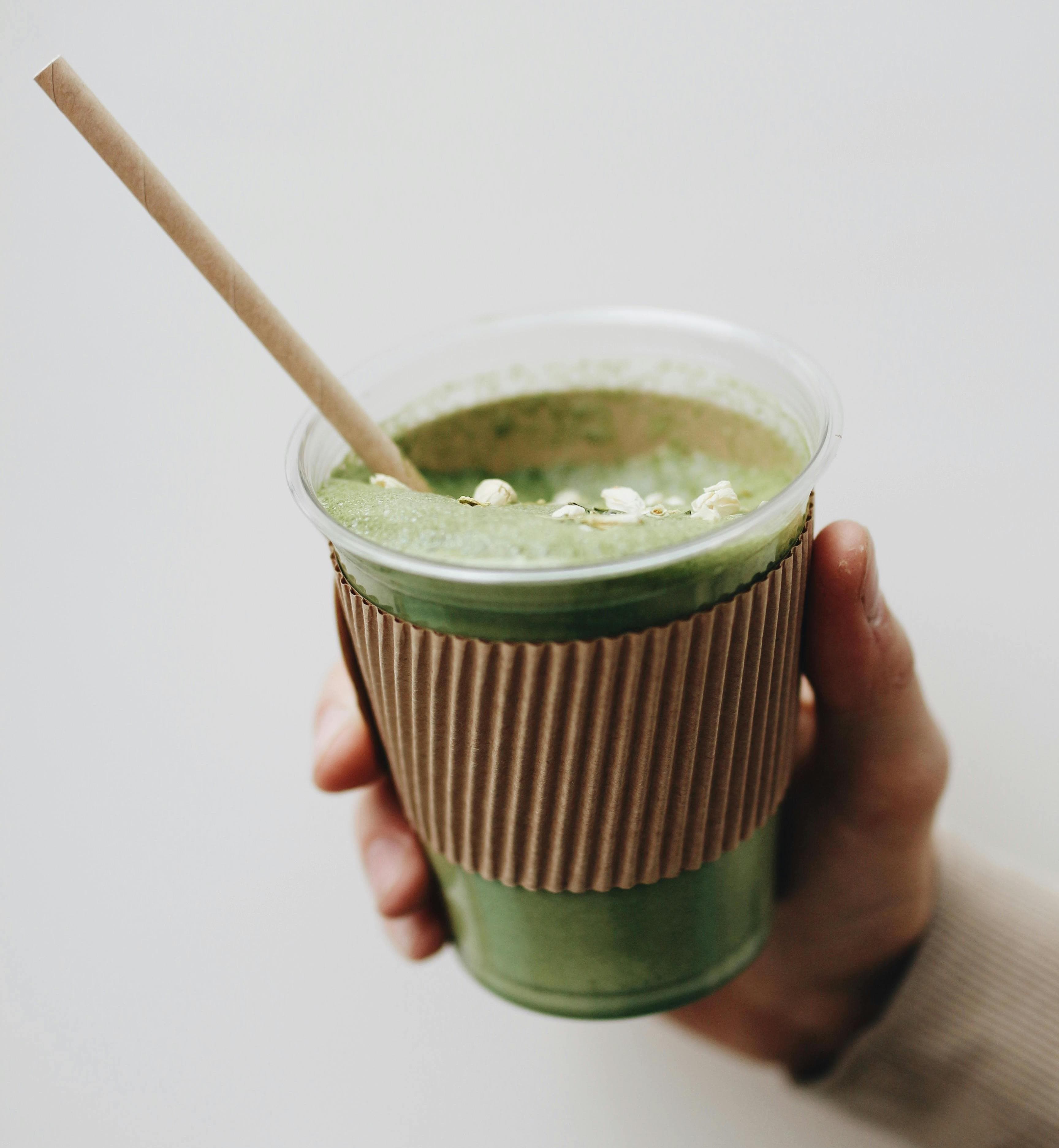 1.Matcha Tea
1.Matcha TeaMatcha tea is a smooth, vibrant green beverage made by whisking finely ground green tea leaves into hot water. Unlike regular green tea, where the leaves are steeped and removed, matcha is fully consumed, which gives it a fuller body and a richer, more complex flavor. The taste is a blend of grassy freshness, gentle bitterness, and a deep, savory umami that lingers pleasantly. High-quality matcha can be surprisingly sweet and creamy, while lower grades tend to be more astringent. Preparing matcha is as much about the process as it is about the drink itself. The powder is first sifted into a bowl to break up any clumps, then a small amount of hot water—usually around 80°C—is added. Using a bamboo whisk, called a chasen, the tea is briskly whisked in a zigzag motion until a layer of fine, soft foam forms on top. This foam not only looks appealing but also softens the tea’s natural bitterness, creating a silky texture and smooth mouthfeel. There are two primary styles of matcha tea: usucha and koicha. Usucha, or thin tea, is lighter and frothy, offering a refreshing and balanced flavor—this is the kind you’ll often find at cafés or casual settings. Koicha, or thick tea, uses more powder and less water, resulting in a dense, velvety texture with a bold, concentrated taste. Koicha is typically reserved for formal tea ceremonies, where the ritual of preparing and drinking it becomes a slow, meditative experience. The tea’s striking green color comes from how the tea plants are grown. For several weeks before harvest, the plants are shaded from sunlight, which boosts their chlorophyll content and preserves amino acids like theanine. This process enhances the tea’s umami flavor while reducing bitterness. It’s also what gives matcha its calming effect despite containing caffeine—the theanine promotes a sense of focused relaxation, making it popular with those seeking gentle alertness rather than the jittery kick of coffee. Though matcha has deep roots in Japanese tea culture, where it’s long been associated with mindfulness and simplicity, it’s found new life in modern drinks like lattes, iced teas, and smoothies. Whether enjoyed during a traditional tea gathering or as part of a morning ritual at home, drinking matcha is about more than just taste—it’s a small, calming moment of pause in a busy day.
- 1
 5.Thai Tea
5.Thai TeaThai tea is a sweet, creamy drink made from strong black tea, usually Ceylon or a local version of Assam. It’s brewed with sugar and often flavored with condensed milk, giving it that rich, smooth taste and signature orange color. When served cold, it’s poured over ice, sometimes with a splash of evaporated milk on top for that creamy swirl. In Thailand, you’ll find it in tall glasses at restaurants or in plastic cups or bags from street vendors. Some places even turn it into a blended drink, like a frappé. There are variations too—like a version without milk called “dark Thai iced tea,” or one with lime for a citrusy kick. People drink it hot in the mornings as well, often with fried dough sticks.
- 2
 1.Philippine Airlines
1.Philippine AirlinesMy flight from Bangkok to Los Angeles was completely packed and the seats were tiny. This is arguably not the airline's fault but the layover in Manila was one of the worst I've had. You are herded from one queue to another for hours, surrounded by a crowd of people at all times.
- 1
 5.Ryanair
5.RyanairThe least dignified way to travel in Europe! Even booking a ticket with them is a nightmare trip through a maze of upsells and dark patterns. Once you have booked your flight, enjoy your 1-hour commute to a second-tier regional airport. The seats are tiny. They're made of cheap plastic, probably so that they can easily hose them down every 100th flight.
- 1
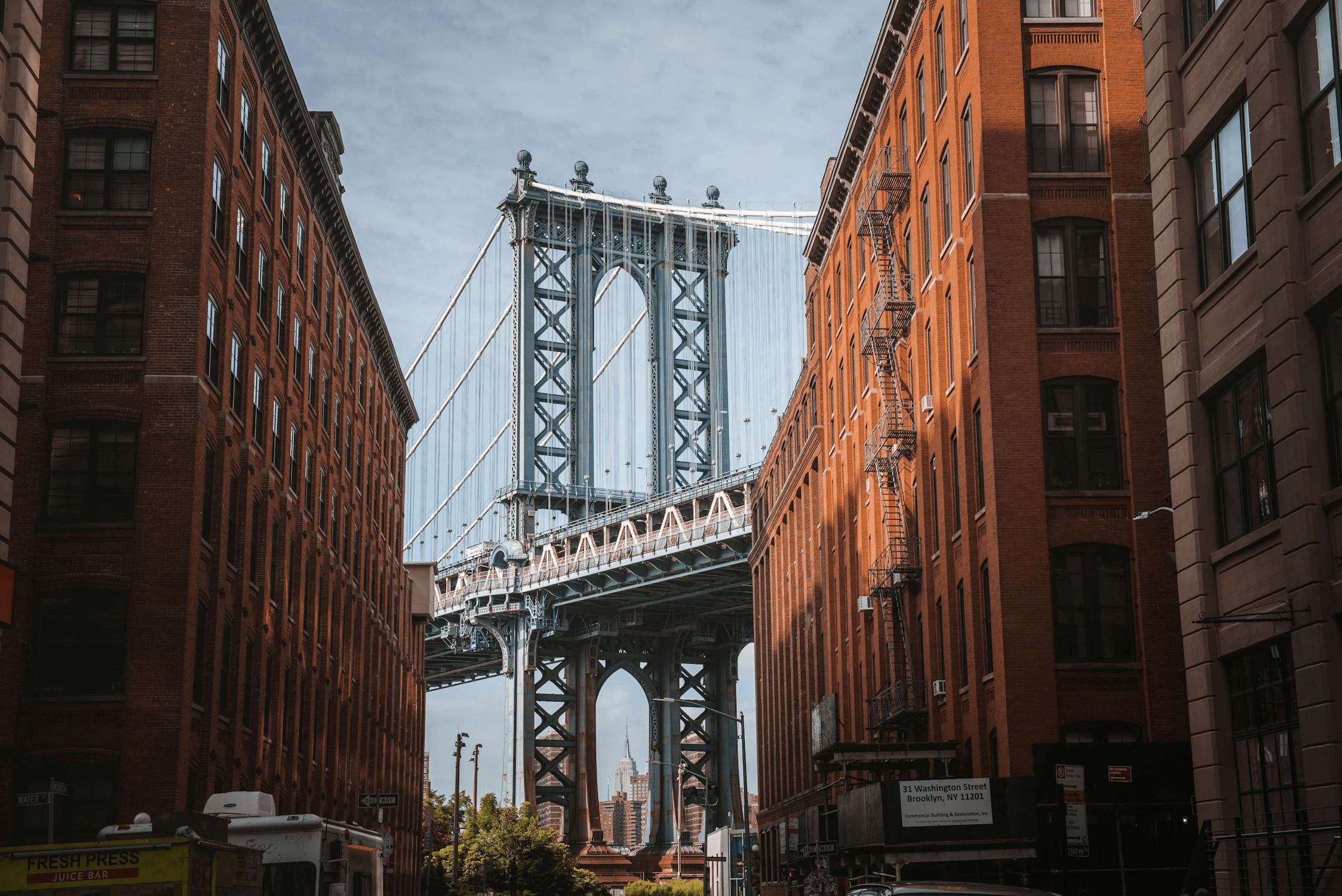 3.Walk around Brooklyn
3.Walk around BrooklynBrooklyn, a vibrant borough of New York City, is a melting pot of cultures and history. Known for its diverse neighborhoods, you can explore hipster havens like Williamsburg and Bushwick, stroll through the historic streets of Brooklyn Heights, or savor the multicultural vibes of Sunset Park. From the iconic Brooklyn Bridge and bustling Coney Island to the serene beauty of Prospect Park, Brooklyn offers something for everyone. Its thriving arts scene, with galleries, theaters, and live music venues, makes it a cultural hotspot. Plus, foodies will love the eclectic mix of cuisines available, from artisanal bakeries to authentic ethnic eateries.
- 1
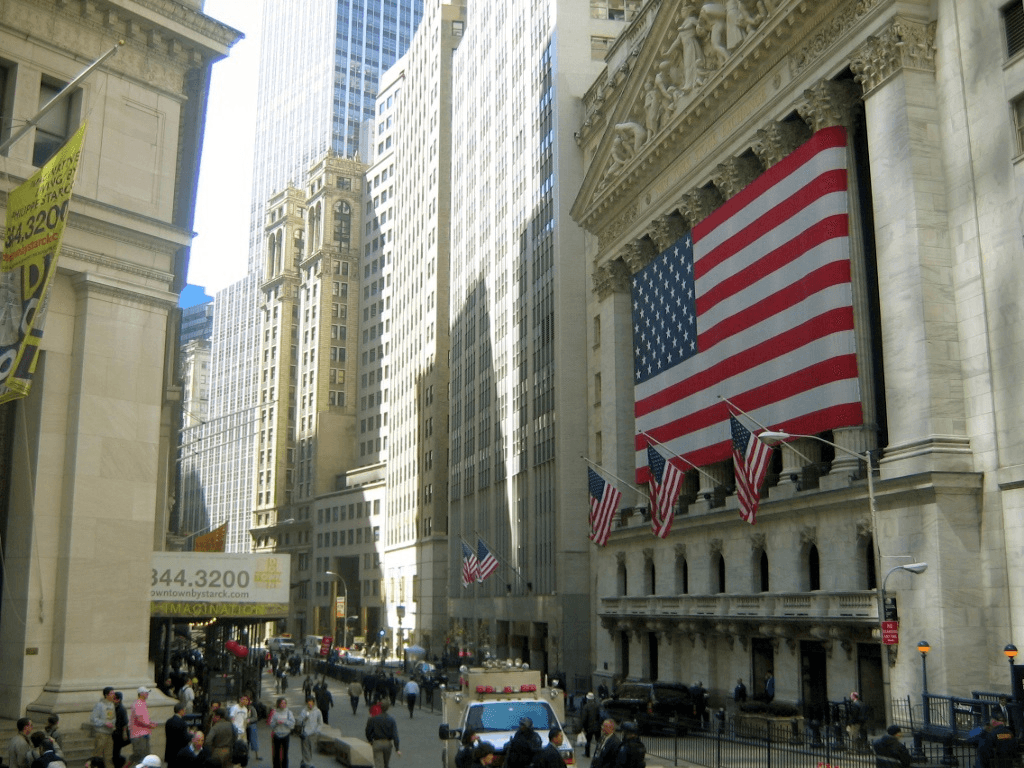 5.Visit Wall Street
5.Visit Wall StreetWall Street, located in the Financial District of Lower Manhattan, is not just the heart of America's financial industry but also a cultural landmark deeply woven into the fabric of New York City. It's famous for being the epicenter of financial markets, home to the New York Stock Exchange (NYSE) and several other major financial institutions. This iconic street has been depicted in numerous movies and TV shows, such as "The Wolf of Wall Street," "Trading Places," and "Billions," symbolizing both the allure and pitfalls of high finance.
- 3
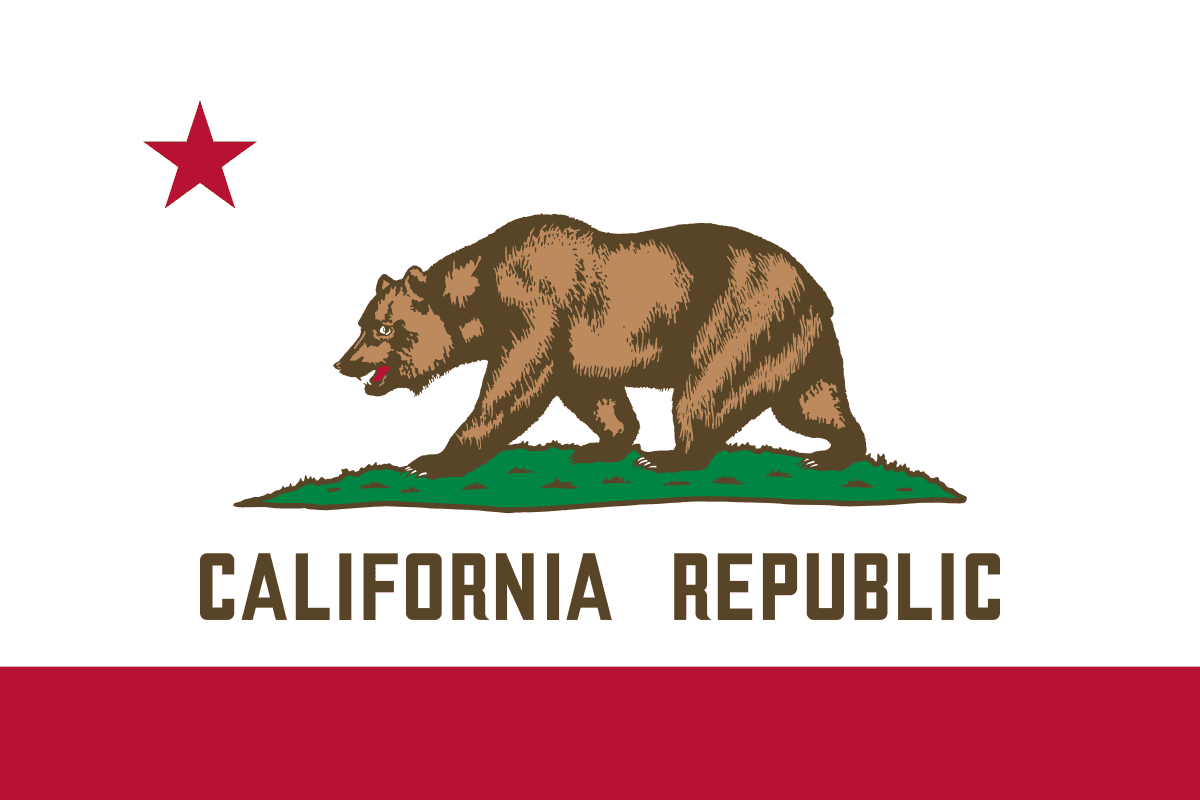 2.California
2.CaliforniaThe Golden State. Home to Hollywood and the Silicon Valley. Produces 80% of the world's almonds. What a great state. Although these days its major cities of Los Angeles and San Francisco are full of drug addicts who poop in the streets. That's too bad :(
- 2
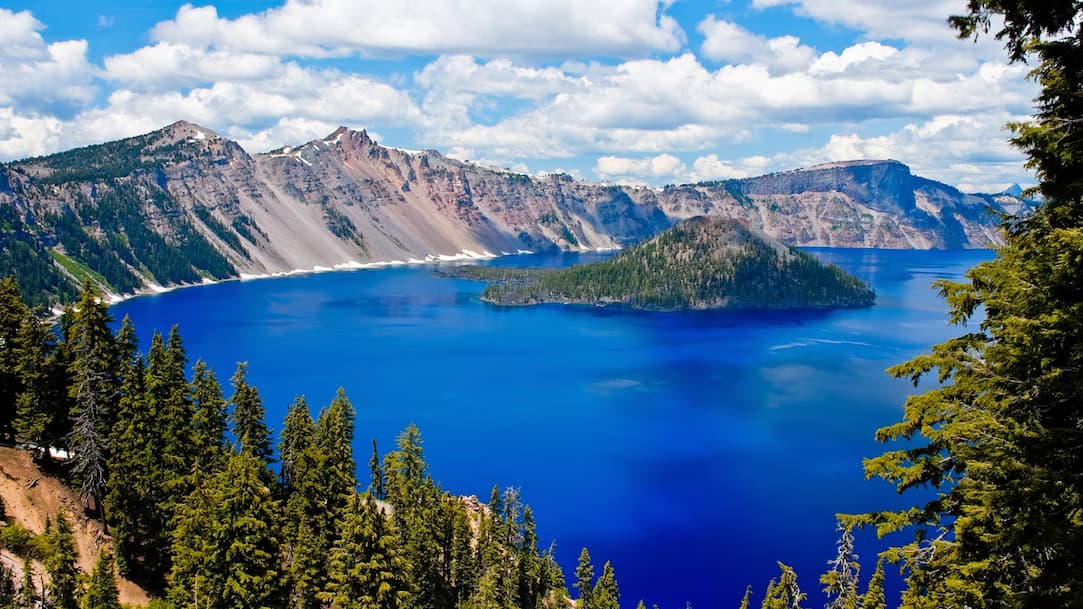 3.Oregon
3.Oregonthe best state around. very beautiful. Okay maybe Portland is weird.
- 2
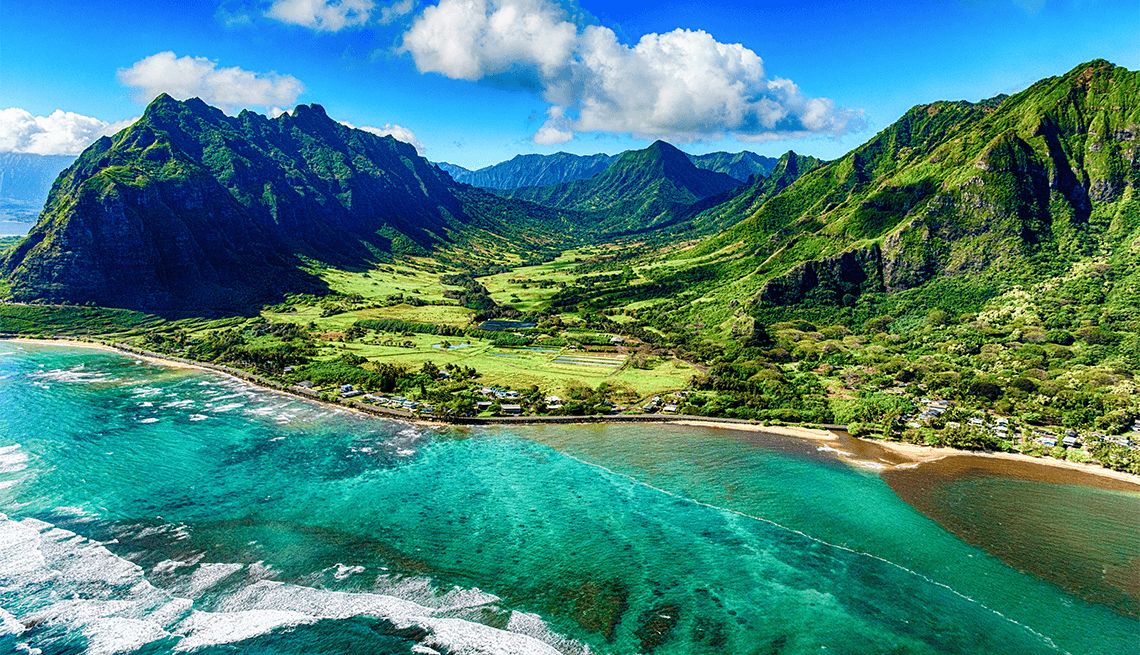 5.Hawaii
5.HawaiiVery tropical and chill state. Better than the rest of them.
- 1
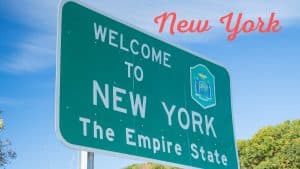 7.New York
7.New YorkHome of NYC and Niagara Falls. There is no city like NYC, and you're just a train ride away from the beautiful Hudson Valley.
- 1
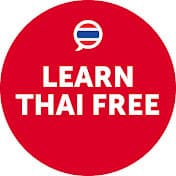 2.ThaiPod101's Live YouTube Channel
2.ThaiPod101's Live YouTube ChannelLearning a new language is hard, you need a lot of repeated exposure to the same words to make them stick. Here's the trick I use. I open ThaiPod101's live channel and let it run in the background while I do something else. For example, I can have it open while cooking dinner or tidying up. Even if I look at the screen only occasionally, I still get the benefits of being repeatedly exposed to Thai vocabulary. This works particularly well in combination with other learning methods. If you have a smart TV or a Chromecast, you can even play it on your TV instead of regular TV channels. The channel runs 24/7 and replays ThaiPod101 lessons.
- 1
 3.Italki
3.ItalkiItalki is a platform connecting language teachers, mostly native speakers, with students. You can book, pay, and schedule your classes directly through their website. The classes are one on one, just you and the teacher, and conducted over a video call. I used Italki successfully before going to Thailand for the first time. My wife who is Thai gave me an Italki gift card. There are plenty of teachers to chose from and the rates are affordable. You'll pay anywhere from $10 to about $20 for a class.
- 0
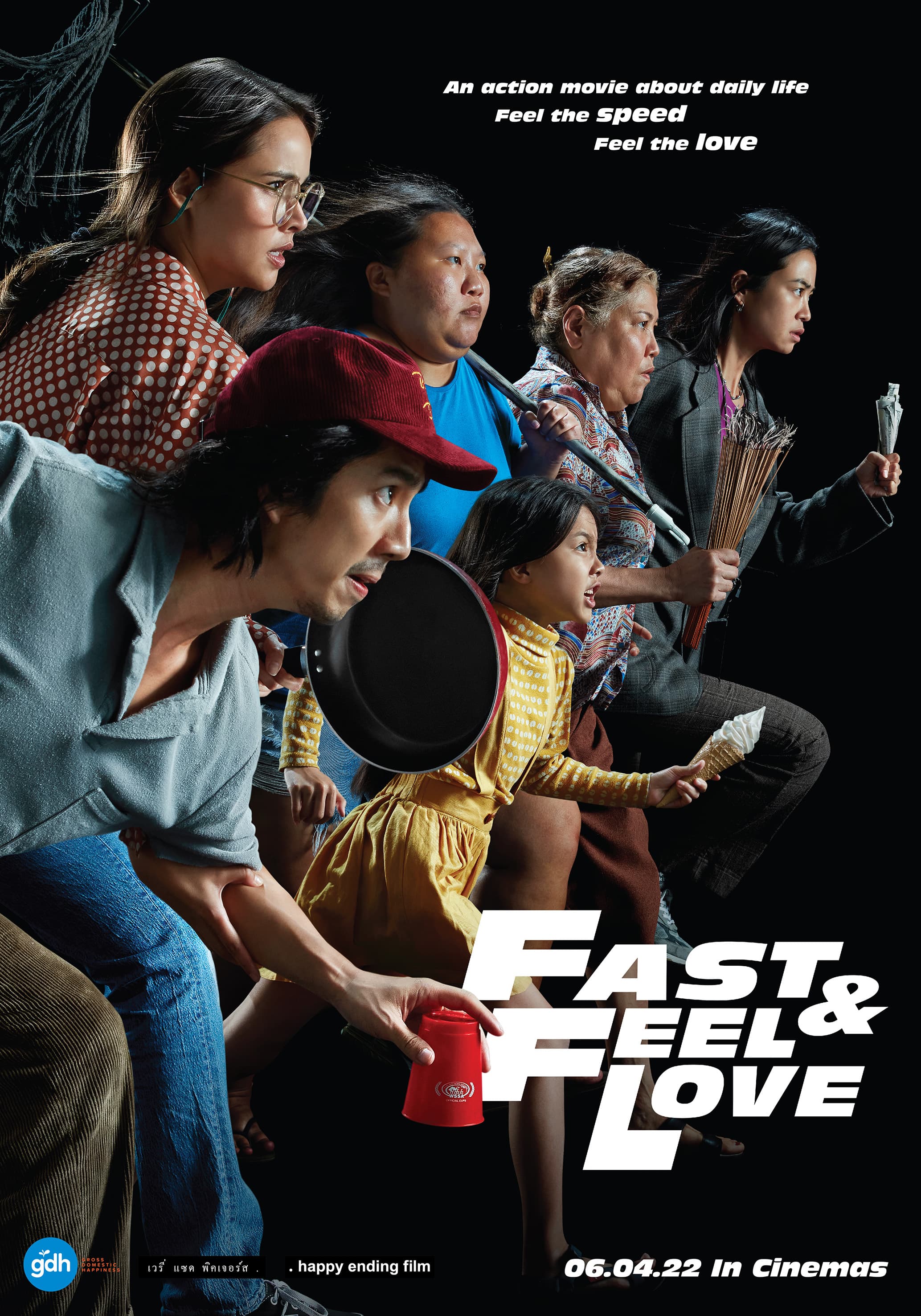 7.Fast and Feel Love
7.Fast and Feel LoveFast and Feel Love is a 2022 Thai action-comedy about a professional cup-stacking champion whose life falls apart when his girlfriend leaves him. Kao (Nat Kitcharit) has spent his life obsessed with speed stacking, aiming to become the world’s fastest. But when Jay (Urassaya Sperbund), the woman who has supported him through everything, decides she’s had enough, Kao is forced to face real life—paying bills, cleaning, cooking, and all the other things he’s never had to do. Directed by Nawapol Thamrongrattanarit, the film blends sports drama with absurd comedy, turning everyday chores into high-stakes action sequences. It’s a fast-paced, hilarious look at growing up, relationships, and the struggles of adulthood.
